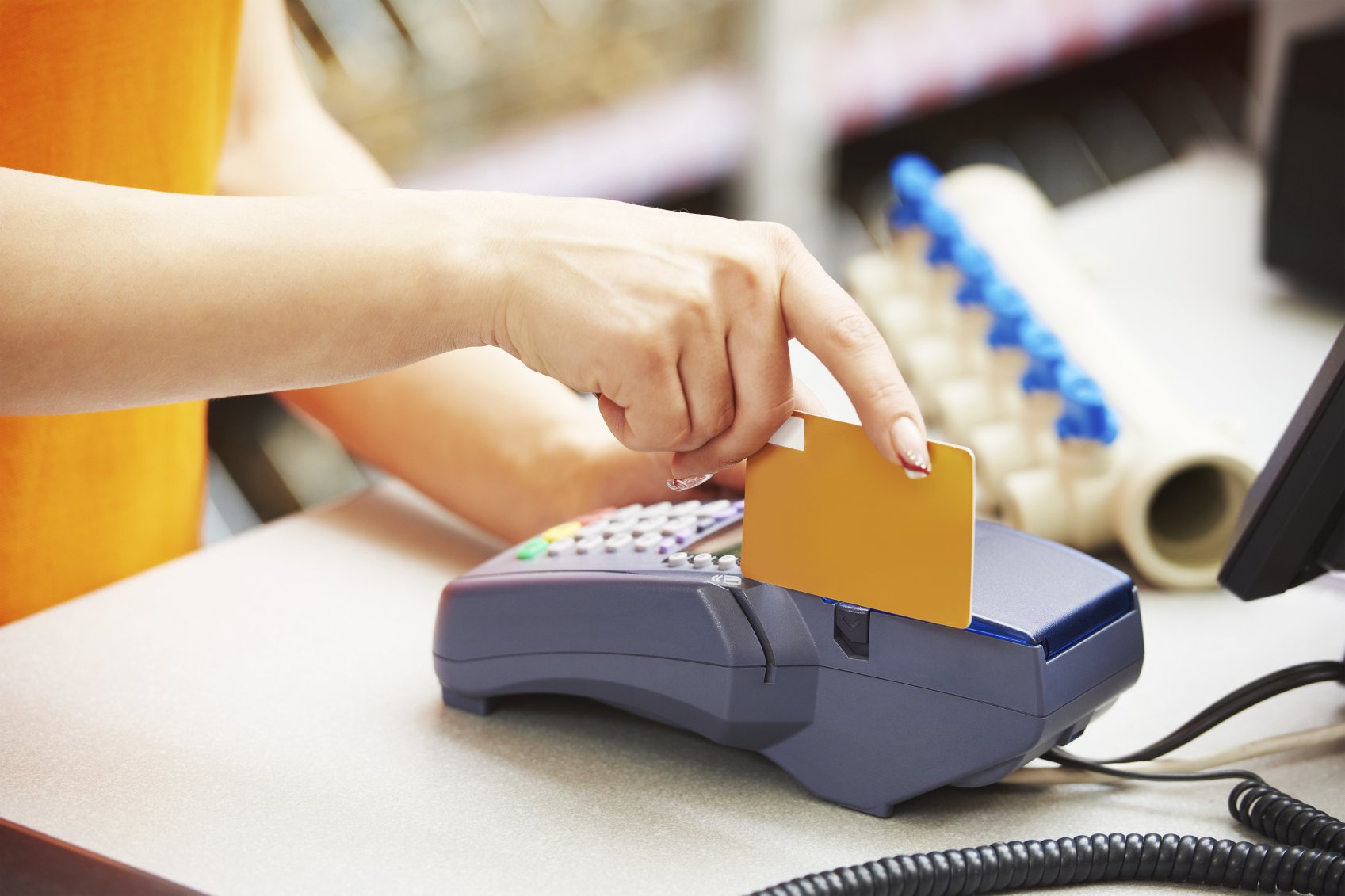We have no shortage of ways to process credit cards today, but the future of credit card processing is in the digital space. And we’re already starting to see the online processing market take off.
BI Intelligence, Business Insider’s premium research service, estimates that the online processing market in the U.S. will be worth approximately $10.7 billion in 2016 and will grow to $17.5 billion in 2020 as online shopping becomes more common.
Below, we’ve outlined the current methods of credit card processing and detailed the future of this industry.
POS Credit Card Processing
Point-of-sale (POS) credit card processing includes any terminal through which a customer can use his or her credit card to make a payment. This includes traditional retail and countertop credit card machines (chip, swipe, and tap methods included), mobile and wireless readers, PIN pads, card swipers, and even small printers.
Virtual Terminals
Virtual terminals are crucial for any small business, mail-order telephone merchant, or work-from-home types. These terminals allow business owners or employees to log into their accounts from any computer connected to the Internet and then manually enter credit card sales in a safe and efficient way. The biggest advantage to virtual terminals is the elimination of expensive hardware and software that is often necessary to process transactions.
Mobile Payment Processing
Mobile payment processing allows merchants to leave their brick-and-mortar stores and take their operations on the go. These mobile point-of-sale devices allow companies to perform transactions at food trucks, sporting events, farmers’ markets, school functions, and even inside customers’ homes.
Credit Card Swipers
Credit card swipers, also known as credit card readers, are small electronic devices that read the account information embedded inside the card’s magnetic stripe. These devices are typically used for in-person transactions.
EMV Chip Readers
In October 2015, the US officially migrated to the EMV (Europay, MasterCard, and Visa) standard that much of the world has used for years. This standard has increased the security of physical credit card payments by embedding a chip into customers’ cards for an extra layer of verification and security.
EMV chip readers require the customer to insert their card into the machine rather than swipe it. The machine then processes the payment as normal, and then asks the user for either a signature or a PIN number to verify the transaction.
Payment Gateways
Payment gateways are essentially the first step in the online payment process, and they have been instrumental in helping e-commerce companies accept online transactions. They serve as the online version of a payment terminal and front-end processor for online and mobile sellers.
Gateways such as Braintree, Adyen, and Worldpay often sell bundled services that include payment acceptance, data reporting, and fraud management.
 BII
BII
Future of Credit Card Processing
The foundation of the future of credit card processing will be based on two pillars: speed and efficiency.
The companies that are staying ahead of the trends in the payments ecosystem have realized that these two factors are paramount for consumers. The Huffington Post notes that 25% of organizations stopped accepting cash altogether in 2015. And given that more individuals are managing their finances electronically, it’s natural that more companies will become cashless.
To that end, mobile payments will be the wave of the future. Apple Pay, Samsung Pay, Chase Pay, Android Pay, Microsoft Wallet, Walmart Pay, Kohl’s Pay, and more will all become habitual for shoppers, who will reach for their phones instead of their wallets.
BI Intelligence forecasts that mobile payments growth will be slower than anticipated, but volume will pick up significantly by 2020 to hit $503 billion, up from $75 billion in 2016. And more than half of the U.S. population will at least try a mobile wallet by 2020.
Mobile payments are typically frictionless, which is a problem that EMV cards have in spades. These chip cards certainly provide extra security, but they are slow to process thanks to their two-step procedures and often frustrate shoppers on the checkout line. This could spur more users to try mobile wallets, which often involve a simple tap of the screen to process the payment.
As a result, more merchants would need to invest in mobile wallet readers, even inside their brick-and-mortar stores. As consumers more frequently expect rapid payment processing, merchants will need to meet that desire or risk losing their customers to other stores that do.
More to Learn
The future of credit card processing is crucial to the health of the payments ecosystem as a whole, but it’s also just one piece of a much larger operation.
That’s why BI Intelligence spent months compiling the greatest and most comprehensive guide on the world of payments entitled The Payments Ecosystem Report: Everything You Need to Know About The Next Era of Payment Processing.
To get your copy of this invaluable guide to the payments industry, choose one of these options:
- Subscribe to an ALL-ACCESS Membership with BI Intelligence and gain immediate access to this report AND over 100 other expertly researched deep-dive reports, subscriptions to all of our daily newsletters, and much more. >> START A MEMBERSHIP
- Purchase the report and download it immediately from our research store. >> BUY THE REPORT
The choice is yours. But however you decide to acquire this report, you’ve given yourself a powerful advantage in your understanding of the fast-moving world of the payments ecosystem.
 EXCLUSIVE FREE REPORT:
EXCLUSIVE FREE REPORT:5 Top Fintech Predictions by the BI Intelligence Research Team. Get the Report Now »














